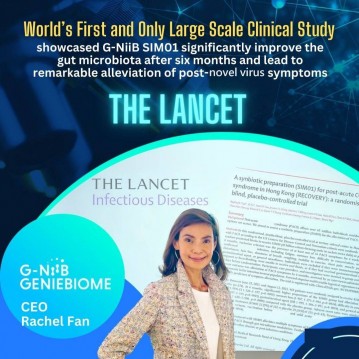
Western lifestyles seem to be closely correlated with the increased risk of colorectal cancer (CRC). A higher intake of processed meats and animal fats, coupled with a low-fibre diet can have a negative impact on health and the immune system.
Frying or grilling high-protein foods such as meat at high temperatures (200°C or higher) can produce carcinogenic heterocyclic amines (HCAs) that have been classified as ‘possibly human carcinogens’ (Group 2B) by the World Health Organization (WHO). In sufficient quantity, consumption of such foods over a long period may lead to an overgrowth of bad bacteria and subsequent gut dysbiosis (imbalance of the gut's microbial community). Adenomas are more likely to develop which may eventually turn into colorectal cancer.
Nevertheless, marinades can significantly reduce the carcinogenic compounds formed in grilling or cooking meats at high temperatures. Several studies examined the effects of marinating and the formation of HCAs. Research results showed that Angus beef meat, grilled chicken breast meat and charcoal-grilled pork meat marinated with beer, red wine, white tea, fruits, onion, garlic, lemon juice or olive oil resulted in significantly decreased levels of HCAs; up to 88% in beer-marinated meat, and 40% after six hours of marinating with red wine. When marinated in garlic or onion overnight, the formation of HCAs was reduced by 31% and 28% respectively.
According to the WHO, processed meat (such as sausages, ham and bacon) has been classified as "carcinogenic to humans" (i.e., Group 1), and 50 grams of processed meat consumed daily – two slices of bacon or hams - can increase the risk of colorectal cancer by 18%. The risk increases with the amount of meat consumed.
Processed meat refers to meat or offal that has been salted, fermented or transformed by other methods to improve preservation (extend its shelf life). Substances such as nitrates, nitrites, and N-nitroso compounds found in meat can increase the risk of colorectal cancer.
Remarkably, processed meat, red meat, and animal fats (such as lard, tallow, mutton oil, fish oil, bone marrow, fatty meat, cod liver oil, etc.) pose varying degrees of risk to health in the cardiovascular and gastrointestinal tract such that we should eat less, while increasing our intake of high-fiber foods such as vegetables and fruits that can reduce the risk of colorectal cancer.
Order now
Our e-shop: https://shop.g-niib.com/products/g-niib-immunity-plus-28days
Delivery in Singapore: https://bit.ly/Lazada_SG_EN
Delivery in Malaysia: https://bit.ly/Lazada_MY_EN
The Uniqueness of G-NiiB Immunity+
- Researched and developed by The Chinese University of Hong Kong.
- Contains the 3+3 best ratio of live good bacteria and prebiotics
- Contains precious live bacterium #Bifidobacterium #adolescentis can help boost immunity
- Adopted patented #microencapsulation technology from Italy ensures sufficient good live bacteria reach your intestine to deliver therapeutic actions and a long shelf-life.
Reference:
Viegas, O., Moreira, P. S., & Ferreira, I. M. (2015). Influence of beer marinades on the reduction of carcinogenic heterocyclic aromatic amines in charcoal-grilled pork meat. Food additives & contaminants. Part A, Chemistry, analysis, control, exposure & risk assessment, 32(3), 315–323. https://doi.org/10.1080/19440049.2015.1010607
Melo, A., Viegas, O., Petisca, C., Pinho, O., & Ferreira, I. M. (2008). Effect of beer/red wine marinades on the formation of heterocyclic aromatic amines in pan-fried beef. Journal of agricultural and food chemistry, 56(22), 10625–10632. https://doi.org/10.1021/jf801837s
Rounds, L., Havens, C. M., Feinstein, Y., Friedman, M., & Ravishankar, S. (2012). Plant extracts, spices, and essential oils inactivate Escherichia coli O157:H7 and reduce formation of potentially carcinogenic heterocyclic amines in cooked beef patties. Journal of agricultural and food chemistry, 60(14), 3792–3799. https://doi.org/10.1021/jf204062p







